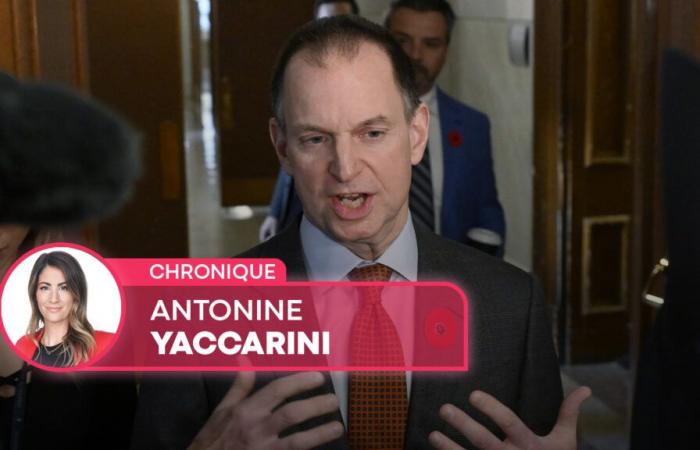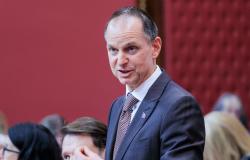November 21 will be the economic update. Although public finances often arouse little passion in the media and citizens – it is technical and a little boring – they have an undeniable impact on our lives and we would therefore benefit from being more interested in them.
What’s the plan?
Our economic woes are not over. Certainly, inflation has slowed, interest rates are starting to fall again and we can see some signs of recovery, but this is not a panacea. Real GDP growth is nothing to get excited about. The update will be an opportunity for Minister Girard to take stock.
When the last budget was tabled, we were told of a total deficit of $11 billion, explained by the difficult economic and climatic context combined with the government’s desire to maintain services. In short, we did not want to do austerity. We were instead going to focus on an effort to optimize and revise programs.
The Minister of Finance, Eric Girard, has not tabled a plan to return to budget balance, saying he is waiting for the economic storm to calm down.
Since the beginning of fall, news concerning cuts here and there has been trickling out: francization, CEGEPs, health network, assistance for small businesses, etc.
We are now entitled to demand a more precise game plan. The government will want to avoid talk of austerity at all costs. It will therefore have to be proactive and transparent with the population.
The compressed Dubé reform
Last Wednesday, the CEO of the new Quebec Health Agency, Geneviève Biron, went on an interview tour. She then indicated that “health must do its part for the sound financial management of the State”. Everyone agrees with that.
See also – “Lots of expectations”: the objectives of Santé Québec CEO Geneviève Biron
The following statement from The Presson November 13, is, however, enough to make you jump: “The increase in the health budget over the past 10 years is around 50%, and the population, 10%. (…) We offer a lot to the population, it’s good, they’re all good things, but I really feel that we need to refocus on the essence of our network.”
Hum!
The data presented intentionally or unintentionally eludes the impact of inflation and population aging. I hope that we will respect our intelligence when they explain to us how to reduce health spending and improve sound management… without austerity!
What does it mean to “refocus on the essence of our network”?
The CEO still had few answers. I know well that she has not yet taken office, but in a tight financial context and with our health system still on the verge of collapse, the government will have to demonstrate that it still has control and that the Dubé reform works, and quickly.
I open a digression: hearing Paul St-Pierre Plamondon say on Sunday that he was not closing the door to abolishing the Santé Québec agency almost killed me. Can we please follow through on an idea for our healthcare system? I close the parenthesis.
See also – The PQ does not close the door to the abolition of Santé Québec
How does the government plan to reduce waiting lists, increase access, reduce waiting times in emergency departments while reducing spending and helping to reduce deficits? That’s what we want to know.
The question arises: can reform really work if combined with austerity? Um sorry, efficiency.
Although the majority of us hope that this reform will bear fruit, it is skepticism that inhabits us. We will see on Thursday if Eric Girard will change or strengthen this feeling.






